HANS Whole Home RO Water Filtration in Ponca City
Get Premium Whole-Home Water Treatment…And Start Enjoying Bottled Water Quality Water at Every Tap!
With a HANS by Culligan Total Home Reverse Osmosis Water Treatment System, problem-free water flows from every tap. Safe for drinking, enhanced for bathing and beauty, and less damaging on your home's appliances. Bottled water quality water at every tap in your home - what's not love about that.
What Does Whole Home Water Treatment Mean?
When we say “whole home,” we mean it. With the installation of this one system, you’ll get bottle-quality water right from the sink. It’s the smart and easy way to reduce the contaminants in all the water in your home so you bathe, shower, cook, and clean without having to worry about lead, arsenic, PFAS, chlorine, iron, hexavalent chromium, or thousands of other potential contaminants.
Quality Water by Culligan is proud to offer the HANS by Culligan Premium Whole House Reverse Osmosis Filtration System to both new and current customers. While reducing water contaminants is often associated with just drinking water, your entire home will benefit from our four-stage filtration process and the added protection it provides from.
- Iron
- Lead
- PFAS
- Chlorine
- Sediment
- Arsenic
- Chromium 6
...and virtually all contaminants!
Plus water using appliances last longer, skin and hair are soft and smooth!
And remember, the HANS by Culligan Premium Whole House Reverse Osmosis Filtration System can save you money too:
- Up to 50% more affordable compared to traditional reverse osmosis systems
- Less water usage
More savings, more ways!
Learn more about the home benefits of a Culligan® Whole House RO!
-
Chromium-6


Chromium-6
Chromium-6
There are other types of naturally-occurring chromium, but chromium-6 is commonly used and produced as a byproduct of industrial production. The stainless steel industry, and any other manufacturer of anti-corrosives, are the main cause of chromium-6-related industrial pollution.
-
Mercury


Mercury
Mercury
Mercury has a complicated reputation in the public conscious, partly because there are two distinct kinds of mercury that are discussed regarding mercury pollution in general, and mercury in water. But how can it affect you?
-
Pharmaceuticals
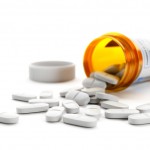

Pharmaceuticals
Pharmaceuticals
Dissolved pharmaceuticals can run through unfiltered and untreated in your water supply and could run all the way through to your tap. Learn more about the high-risk areas, and what you can do to fight this growing issue.
-
Total Dissolved Solids (TDS)
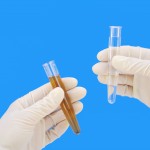

Total Dissolved Solids (TDS)
Total Dissolved Solids (TDS)
Total dissolved solids include a wide range of organic and inorganic compounds found in your water such as nitrates, chloride and phosphates. So how many TDS do you have in your water, and how do you know if it's an issue? Read more to learn.
-
Bacteria
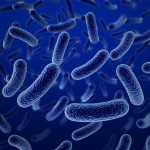

Bacteria
Bacteria
Invisible to the naked eye, your home’s water could contain bacteria. Whether the bacteria comes from the source or old pipes, your home is most susceptible if your source is a well. Read to learn more.
-
PFAS


PFAS
PFAS
PFAS water contamination impacts residents everywhere. Learn more about what you can do about this new environmental issue that has been in the news lately.
-
Chlorine Smell


Chlorine Smell
Chlorine Smell and Taste
Chlorine is one of the most commonly used water disinfectants use by water companies. However, it can leave an unpleasant taste in your water when it reaches your home.
-
Lead


Lead
Lead
Lead is a well-known water contamination issue in the country today. Municipalities are slowly starting to catch on, but there are plenty of homes with lead piping and fixtures. Is your home older? Here's how you can check for lead in your water.
-
HAA5


HAA5
HAA5
HAA5, or haloacetic acids, refer to a handful of compounds that can occur in tap water as a result of common municipal treatment methods such as chlorination. So is it a major issue? Learn more about it.
-
Arsenic
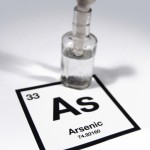

Arsenic
Arsenic
Arsenic can occur natural or is a byproduct of agricultural industry. In some cases, high arsenic levels can have negative effects on your health. But when should you be concerned, and how can you deal with it? If you're a well water user, you should read this.
-
pH Problems
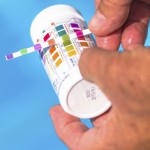

pH Problems
pH Problems
Every liquid has a pH, including your home’s water. Whether the pH is too high or too low, it can have damaging effects on your water. So when is it an issue for your home, and what can you do about it?
-
Fluoride


Fluoride
Fluoride
The practice of adding fluoride to municipal supplies has come under increased scrutiny. While the idea that fluoride is a "contaminant" can be disputed, some people do not like it in their water. And your fridge filter does not likely help. What can remove fluoride? Learn more.
-
Copper Pipes


Copper Pipes
Copper
Copper is one metal that acid water can dissolve into your water system. While copper pipes are used in household plumbing, and it is in fact necessary for your diet, it can be poisonous. But not all homes with copper pipes have poison water. So learn when you should be concerned.
-
Nitrates


Nitrates
Nitrates
If you live in a rural area, nitrates in water might be of chief concern to you and your family’s health – particularly if you have an infant or a pregnant mother nursing in the home. Learn more about how you can suspect nitrate contamination and what you can do about it.
-
Rotten Egg Smell


Rotten Egg Smell
Sulfur
Water may smell like rotten eggs. This is the result of sulfur somewhere in your water supply. But it's not always your external source and your solution can rely on simple tests that often don't require professional assistance. Learn what you can do, and when it's necessary to bring in professional help.
